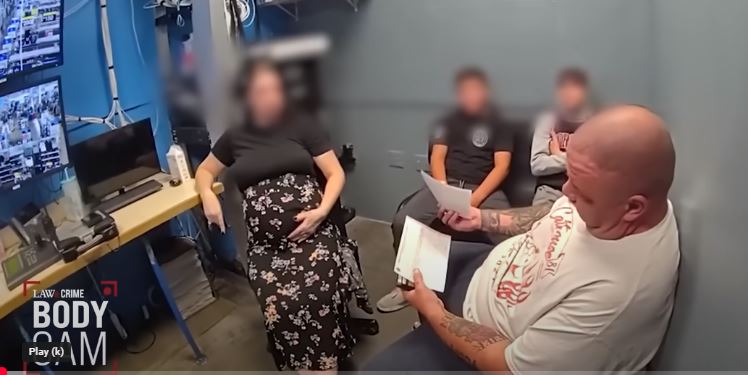Understanding the Process and Rules of Impeachment in Michigan
Michigan’s history with impeachment is relatively short, with the first and only instance occurring in 1975 against Governor William Milliken.
However, the process outlined in the state’s constitution and further detailed in the Michigan Compiled Laws Act 62 of 1872 remains a relevant and important safeguard against misconduct by public officials.
Take a dive into the impeachment rules and laws in Michigan
Grounds for Impeachment:
As per MCL Act 62, impeachment in Michigan can be initiated against any state officer, including the governor, lieutenant governor, secretary of state, attorney general, and justices of the supreme court.
The grounds for impeachment are outlined in the Michigan Constitution, Article IX, Section 7, and encompass a range of offenses, including:
- Treason: Betraying the state or aiding its enemies.
- Bribery: Accepting or offering bribes in exchange for official action.
- Misconduct in office: Any act that constitutes a violation of the public trust or a breach of duty by an official.
- High crimes and misdemeanors: This catch-all category encompasses serious offenses that, while not specifically defined, are deemed to be detrimental to the state and its citizen
The Impeachment Process:
The impeachment process in Michigan is a two-stage procedure:
1. House of Representatives:
The process begins in the House of Representatives, where a majority vote is required to initiate an impeachment inquiry.
If the inquiry finds sufficient evidence of wrongdoing, the House can vote to impeach the official by a two-thirds majority.
Upon impeachment, the official is suspended from office until the Senate trial.
2. Senate Trial:
The Senate then conducts a trial, presided over by the Chief Justice of the Supreme Court.
Both the House and the impeached official are represented by counsel and have the right to present evidence and witnesses.
A two-thirds majority vote in the Senate is required to convict the official and remove them from office.
MCL Act 62 and the Impeachment Process:
MCL Act 62 provides further details and procedures related to the impeachment process. It outlines:
The specific steps involved in forming an impeachment inquiry committee in the House.
The rules of evidence and procedure during the Senate trial.
The potential consequences of conviction, including removal from office and disqualification from holding future public office.
Michigan Laws
IMPEACHMENTS
6.1 Impeachment of civil officers; power of house, suspension; vacancies.
Sec. 1.
6.2 Impeachment; trial by senate, judgment.
Sec. 2.
6.3 Impeachment; prosecution by house.
Sec. 3.
6.5 Impeachment; appearance and answer of accused.
Sec. 5.
6.6 Impeachment; counsel for accused.
Sec. 6.
6.7 Impeachment; trial, time, place, adjournment.
Sec. 7.
6.8 Impeachment; acquittal.
Sec. 8.
Have your rights been violated?
Have your driving priviledges been revoked?
Has your professional license been suspended?
Have you been charged with a crime?
Call our office to see if we can help
Komorn Law 248-357-2550
6.9 Impeachment; president of senate, notice to senate.
Sec. 9.
6.11 Impeachment; duties of secretary; record of proceedings, oaths.
Sec. 11.
6.12 Impeachment; senate appointment and removal of subordinate officers.
Sec. 12.
6.13 Impeachment; powers of managers, rights of process.
Sec. 13.
6.14 Impeachment; senate rules and regulations.
Sec. 14.
6.15 Impeachment; compensation of members of court, managers, and other officers; payment.
Sec. 15.
6.16 Application of act.
Sec. 16.
Index
Index and Information Source
History: 1872, Act 62, Imd. Eff. Mar. 30, 1872
| Document | Type | Description |
| Section 6.1 | Section | Impeachment of civil officers; power of house, suspension; vacancies. |
| Section 6.2 | Section | Impeachment; trial by senate, judgment. |
| Section 6.3 | Section | Impeachment; prosecution by house. |
| Section 6.4 | Section | Impeachment; organization of senate as court, oaths, attendance of members. |
| Section 6.5 | Section | Impeachment; appearance and answer of accused. |
| Section 6.6 | Section | Impeachment; counsel for accused. |
| Section 6.7 | Section | Impeachment; trial, time, place, adjournment. |
| Section 6.8 | Section | Impeachment; acquittal. |
| Section 6.9 | Section | Impeachment; president of senate, notice to senate. |
| Section 6.10 | Section | Impeachment; writs and process, signing and testing, enforcement. |
| Section 6.11 | Section | Impeachment; duties of secretary; record of proceedings, oaths. |
| Section 6.12 | Section | Impeachment; senate appointment and removal of subordinate officers. |
| Section 6.13 | Section | Impeachment; powers of managers, rights of process. |
| Section 6.14 | Section | Impeachment; senate rules and regulations. |
| Section 6.15 | Section | Impeachment; compensation of members of court, managers, and other officers; payment. |
| Section 6.16 | Section | Application of act. |
More Posts

When Can Police Take Your Dash Cam?
You work hard. Now get ready to work harder to prepare to give more.In Michigan, police can take your dashcam footage in specific situations, primarily when they believe it could serve as evidence in a criminal investigation. Michigan law permits officers to seize...

People who are going to need a Lawyer – November 12, 2024
People who are going to need a LawyerMan so drunk field sobriety tests were ‘too dangerous’ sentenced to life in prison for repeated DWI convictions‘Several terabytes’: Diddy prosecutors shed light on ‘voluminous’ discovery, including iCloud accounts and dozens of...

Cambridge Analytica data breach comes before court
Oral arguments in Facebook v. Amalgamated Bank will beginThe justices are set to review securities law as they hear arguments in a significant case linked to the 2015 data breach involving Cambridge Analytica and Facebook. The tech giant’s effort to fend off federal...

Search and Seizure – Consent or Plain view
The Fourth Amendment was established to protect individuals from unreasonable searches and seizures, yet there are exceptions.In Michigan, understanding the concepts of search and seizure, particularly regarding consent and plain view, is crucial for both law...

A drunk driving investigation, a car wreck and a blood draw
A Case Summary: People v. Blake Anthony-William BartonOn October 11, 2024, the Michigan Court of Appeals issued a decision in the case People of the State of Michigan v. Blake Anthony-William Barton. The case involved a drunk driving investigation following a car...

Police say they can tell if you are too high to drive
Police say they can tell if you are too high to drive. Critics call it ‘utter nonsense’Haley Butler-Moore sped up to pass a semi on the highway when she suddenly saw the police lights. She’d left Albuquerque hours earlier, heading to a Halloween party in Denver. Tired...

Cannabis – The Rise and Fall and Trail of Survivors Pile Up
Thieves make off with 1,000 pounds of premium flower in cannabis from a corporate grower in Michigan. Then, the GM sells off 650+ pounds to pay employees.The recent theft of over 1,000 pounds of marijuana from 305 Farms, a corporate cannabis grower in West Michigan,...

If you have an LLC you must comply or face fines and possible prison
You work hard. Now get ready to work harder to prepare to give more.If you own or are a member of an LLC.You have a deadline of January 1, 2025Call us we can take care of it for you. 248-357-2550The new Beneficial Ownership Reporting requirements for LLCs and other...

Compounding Charges Laws in Michigan
Understanding Compounding Charges Laws in Michigan Compounding charges refer to the illegal act of accepting or agreeing to accept a benefit in exchange for not prosecuting a crime. In Michigan, this is considered a serious offense, and the law specifically prohibits...

Harris unveils new proposals targeting black men with cannabis legalization
"Harris unveils new proposals targeting Black men as she looks to shore up Democratic coalition" CNNAmid the ongoing national issues, Vice President Kamala Harris introduced new initiatives on Monday aimed at addressing the needs of Black men as she works to bolster...











